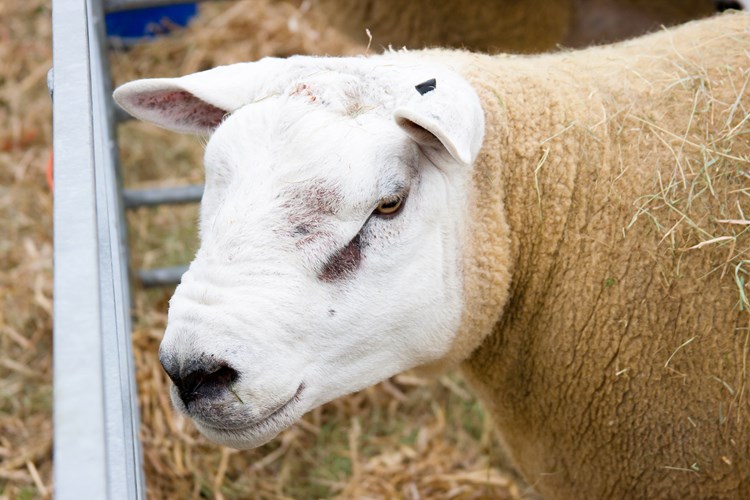Sheep experts team up to reduce emissions

Livestock experts from around the world have been working together to try to reduce the environmental impact of sheep.
SRUC and the Texel Sheep Society have teamed up with partners from New Zealand, Ireland, and three other key sheep-breeding nations to provide a platform for national and global comparison of methane and carbon dioxide emissions for the purpose of selective breeding for lower-emitting animals.
Methane is a natural byproduct of the digestive process of ruminant animals, where microbes in the rumen ferment feed and produce methane as a waste product (known as enteric methane production). Globally, there are an estimated 1.2 billion sheep, producing around seven million tonnes of methane into the atmosphere, approximately 6.4% of the total enteric methane from livestock.
Sustain Sheep builds on research from New Zealand which suggests that, by exploiting the natural variation in methane emissions between individual sheep, selective breeding could reduce emissions by 1-2% per year, without compromising genetic improvement in other traits.
Building on existing and previous project collaborations at home and abroad, the SustainSheep project, which has just reached the end of its first year, uses portable accumulation chambers across all countries for individual animal methane measurements.
In the UK, hill sheep from SRUC’s Hill and Mountain Research Centre near Loch Lomond (approximately 450 lambs measured over four years), as well as performance-recorded Texel sheep flocks (around 500 lambs measured over two years) are participating in the research, which will run to 2027.
John Yates of the Texel Sheep Society said: “Methane measurement using Portable Accumulation Chambers (PACs) is still in its early stages, but if scalable and affordable, it could play a vital role in breeding programmes to support the government's net-zero target.”
Dr Nicola Lambe from SRUC said: “A crucial aspect of this project is understanding what impacts there might be of reducing greenhouse gas emissions (GHG) on other animal characteristics such as growth, feed intake and efficiency, and quantifying the effects of these. This will enable recommendations for breeding programmes to be determined in tandem with the economic implications of selecting for low-methane sheep.
“In the UK and other countries there is chronic under-adoption of genetic improvement as a means to meet policy targets for lower GHG emissions, and there are many barriers to taking up new outcomes from research by the sheep industry. The robust science from the project will provide a mechanism for national and global comparisons to underpin Governmental GHG reduction targets for the successful implementation of science into policy.”
It is expected the research will provide tools and knowledge to help steer the direction of future breeding programmes and related government policies, so that UK sheep producers can see clear benefits from reducing methane emissions from their flocks.
Sustain Sheep is carried out under the Green ERA-Hub, a Coordination and Support Action (CSA), funded through the European Union’s Horizon Europe research and innovation (R&I) programme.
To find out more, visit the Green ERA-Hub website.
Posted by SRUC on 16/05/2025
